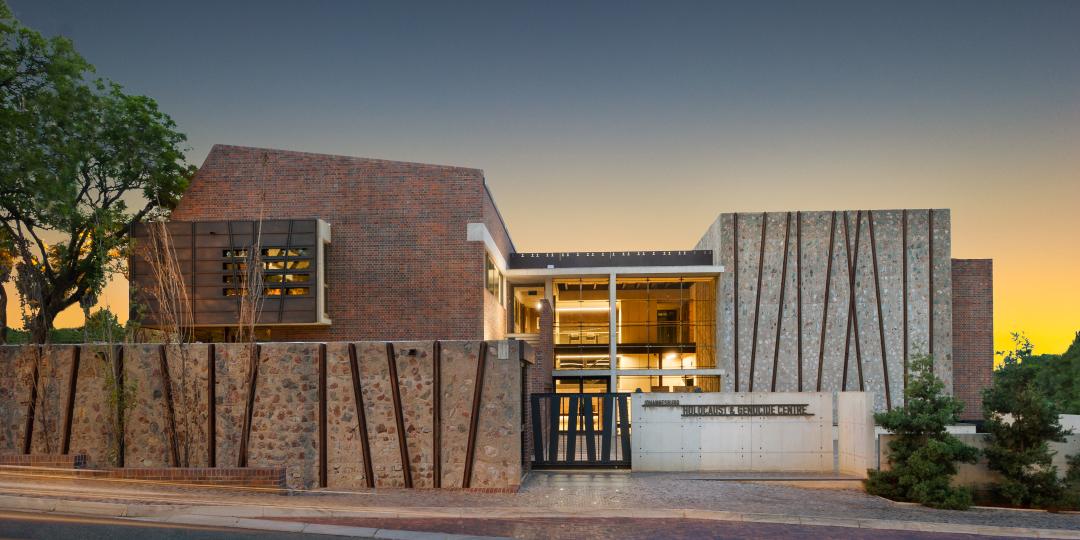The Johannesburg Holocaust & Genocide Centre opened to the public today, after years of development. It explores the history of genocide in the 20th century with a specific focus on the case studies of the holocaust and the Rwandan genocide of 1994.

Genocide survivors Veronica Phillips and Sylvestre Sendacyeye.
The Centre is home to a permanent exhibition, a temporary exhibition space, and the Hall of Light, which hosts various changing exhibitions. There are multiple venues for workshops and public events, a memorial garden and a coffee and gift shop.
The centre also hosts a resource centre, which holds a collection of over 1 500 books and DVDs relating to the Holocaust and other genocides. A full programme of events, films, plays, lectures and more is offered to schools, educators, NGO’s and corporates.
Talie Nates, founder and director of the Centre, explains: “This is a place of learning, where people of all ages, from all walks of life, come together to learn from the histories of the Holocaust and the genocide in Rwanda. In this space, people gain knowledge, share their stories, and experience thought-provoking films, exhibitions and lectures. Our Institute teaches the consequences of prejudice, racism, and ‘othering’, antisemitism, homophobia and xenophobia and the dangers of indifference, apathy and silence.”
Alongside its African focus, the centre’s permanent exhibition is unique in that visitors are invited to explore the history and moral choices of various role players and witnesses to the events, including survivors, perpetrators, resistors, rescuers and bystanders. The interactive permanent exhibition includes collections of photos, testimonies, poetry, art, multimedia, timelines and artefacts contributed by survivors and survivors families based in Johannesburg.























